The war across the river
FOR TENS OF THOUSANDS OF PEOPLE LOOKING TO ESCAPE THE VICIOUS WAR IN CENTRAL AFRICAN REPUBLIC,
CROSSING THE OUBANGI HAS BECOME THE DIFFERENCE BETWEEN LIFE AND DEATH.
The war
The river
No ordinary life
Waiting for God
THE STORY OF HAOUA
A REASON TO HATE
The war
When the Muslim-led Séléka rebels took Bangui in March 2013, ousting President Francois Bozize in what appeared to be the easiest of coups, the rebels brought with them a terror that changed the city forever. In response, the anti-Balaka militia was formed, intent on ousting Séléka. Beheadings, cannibalism, old fashioned hacking and murder now reign supreme. The Central African Republic is at war.
The story of Haoua
Several days later, she learned with relief that her children had reached an internally displaced person (IDP) camp in Sido, western CAR. “I want to go to Sido because my children are there,” she says. But for now, Idriss is renting a small mud and corrugated iron home in Zongo, where she spends her time trying to earn an income and attempting to persuade the National Commission of Refugees to move her children closer to her. Idriss’ tale of separation and devastation is shared by hundreds of thousands of those impacted by a conflict that has seen more than 2,000 people killed and over a million displaced.
Children and pregnant women have been hacked to death, severed limbs carried through the streets like trophies and suspected fighters or thieves burnt alive by mobs who have then eaten their body parts.
When Muslim-led Séléka rebels ousted President Francois Bozize in March 2013, it was the culmination of months of instability.
ZONGO, DEMOCRATIC REPUBLIC OF CONGO
But rioting had engulfed the area and the family found itself chased through the streets by militia members. When they caught her 21-year-old nephew, Idriss’ daughters pleaded with her not to turn back to help him, lest they all be caught.
So, from a distance she witnessed his fate. "I wanted to turn around, but they refused to let me.” She recalls what came next: “And then they sliced him up on the streets.”
In the mayhem that followed, Idriss was separated from her own children. With three of her nieces and their children, she boarded a boat to Zongo, the town sitting on the other side of the river in the DRC.
orty-two-year-old Haoua Idriss uses her floral hijab to wipe away the tears that stifle repeated attempts to tell her story. In December last year, militiamen murdered her husband and destroyed their home in Bangui, the capital of the Central African Republic (CAR). She was forced flee to her late sister’s home in another district. But the violence followed her there.
So, the mother of five gathered her children and those of her late sister’s and set off in the hope of catching an early boat across the Oubangi River to neighbouring Democratic Republic of Congo (DRC).
f
Haoua Idriss has been separated from her three children since January 2014

The tale of loss, separation and chilling murder is a recurrent theme among refugees in the DRC

Fearing their safety, many Muslims who have fled CAR to the DRC have preferred to live among their own community as opposed to the refugee camps managed by authorities

The rebels accused Bozize of failing to honour the Libreville accord in January 2013. The accord aimed to end armed opposition to the government and to pave the way towards a more lasting democracy. But as the rebels advanced on Bangui, they were allowed to take the capital as French forces and members of the Multinational Force of Central Africa (FOMAC), stood back and observed the unfolding coup.
Michel Djotodia became interim president in March 2013 but his control over the rebels weakened as they embarked on a countrywide campaign of violence, forcing the first wave of displacement.
Those associated with Bozize's regime or who enjoyed some form of wealth, status or power, were targeted by the Séléka. Forty-two-year-old Kopia Alain Charles, who is now living in Zongo, says they set their sights on him because of his thriving construction business. He fled with his wife and four of his six children, leaving the other two with his brother-in-law. To punish him for leaving, he says the Séléka rebels killed his grandfather.
"They killed him, because of me. I have put a red cross on Bangui. I don't want to talk about that place," Charles says.
What is generally agreed upon, however, is that the devastation wrought by the predominantly Muslim Séléka fighters – looting and killing, maiming and the recruitment of child soldiers – inspired the formation of civilians and former fighters loyal to the old regime into predominantly Christian groupings known as the anti-Balaka, loosely translated as anti-machete, militia who were intent on challenging the Séléka.
The anti-Balaka began reprisal attacks on Séléka fighters and members of the Muslim community, which make up around 15 percent of the population, perceived to be sympathetic to them. This shift in power on the streets was assisted by the fact that the French had already begun disarming the Séléka.
Human rights groups are concerned that the international community would also rather ignore the horror stories coming out of CAR. In March, Human Rights Watch (HRW) said:
“The response… since December 2013 has been unable to keep pace with the crisis, particularly the need to protect civilians and provide aid for the thousands of displaced people” and urged the United Nations to immediately deploy a full-fledged peacekeeping force.
HRW's comments came days after Navi Pillay, the UN High Commissioner for Human Rights, said that communal violence in the country had reached "terrifying levels".
Drawing comparisons with Rwanda and the Balkans, Pillay urged the world to act: "If we get it wrong again, by failing to support this country wholeheartedly in its time of need, we risk decades of instability and the creation of a new and fertile breeding ground for religious extremism, not just in CAR but in the wider region.” But merely understanding the crisis – and array of international players allegedly involved – in CAR is difficult.
“I have crossed out Bangui.
I don't want to talk
about that place.”
- KOPIA ALAIN CHARLES
Christians like Kopia Alain Charles were targeted by the Muslim-led Séléka rebels soon after the coup in March 2013

Many refugees admit that the killings were often indiscriminate, saying they could not differentiate between competing rebel groups

A reason to hate
One man, who identified himself as an activist from Bangui, said he wore the traditional Muslim prayer hat to remind others in Mole that Muslims too, were suffering because of the war.
Many others, like 62-year-old Haoua Madjido, who says she fled CAR because she couldn’t stand the sight of body parts being pushed through the streets in wheelbarrows, are simply confused.
"I could not tell who was Séléka or anti-Balaka on the streets. People were just killing each other," she says. “I simply don’t understand what has happened,” adds the former steel pot seller who used to travel across CAR, venturing as far as eastern DRC to sell her wares, but who must now hustle for UN hand-outs of beans, oil and flour.
espite the religious dimensions to the conflict, many of the civilians caught up in it accuse the various militias of killing indiscriminately across religious lines.
"The brutal killings in the Central African Republic are creating a cycle of murder and reprisal that threatens to spin out of control," explained Peter Bouckaert, the emergencies director of HRW.
Despite the random nature of the violence, it is, however, difficult to deny the ethno-religious facet of the conflict.
In the Mole refugee camp some 34km outside Zongo, Christian youth who fled Bangui when the Séléka took the city suggest that “the Muslims” are to blame for the crisis that has seen them forced into this camp “in the middle of the bush”. Many officials, however, insist that religion is a smoke screen for deeper discontent.
Speaking off the record, they say that some youth in the camp had been benefactors of the old government, living comfortable lives in Bangui, and now, finding themselves in exile, needed to attribute blame to some clearly identifiable “other”.
“Two of my children are here but the others are now spread elsewhere," Madjido explains, adding that she does not know if she will ever return to her home country. For Alain Charles, the desire to be reunited with his two children who remained in Bangui overrides his concerns about returning. But for Haoua Idriss, whose children remain in the camp on the other side of the country she escaped, the decision is clear.
"When I look across the river at Bangui, I remember what happened there and I get overwhelmed,” she says. “I lost my husband, my sister's child. I lost everything. You ask me, if I want to return. No, I do not. I don't ever want to see Bangui again."
d
MOLE REFUGEE CAMP, DEMOCRATIC REPUBLIC OF CONGO
“When I look across the river at Bangui, I remember what happened there and I get overwhelmed.”
- HAOUA IDRISS
Sixty-two-year-old Haoua Madjido says she left CAR because she couldn’t stand the site of body parts being pushed through the streets in wheelbarrows

Madjido says she had hoped the French would bring peace, but the situation has become only worse

RETURN TO TOP...
...OR CONTINUE TO NEXT CHAPTER
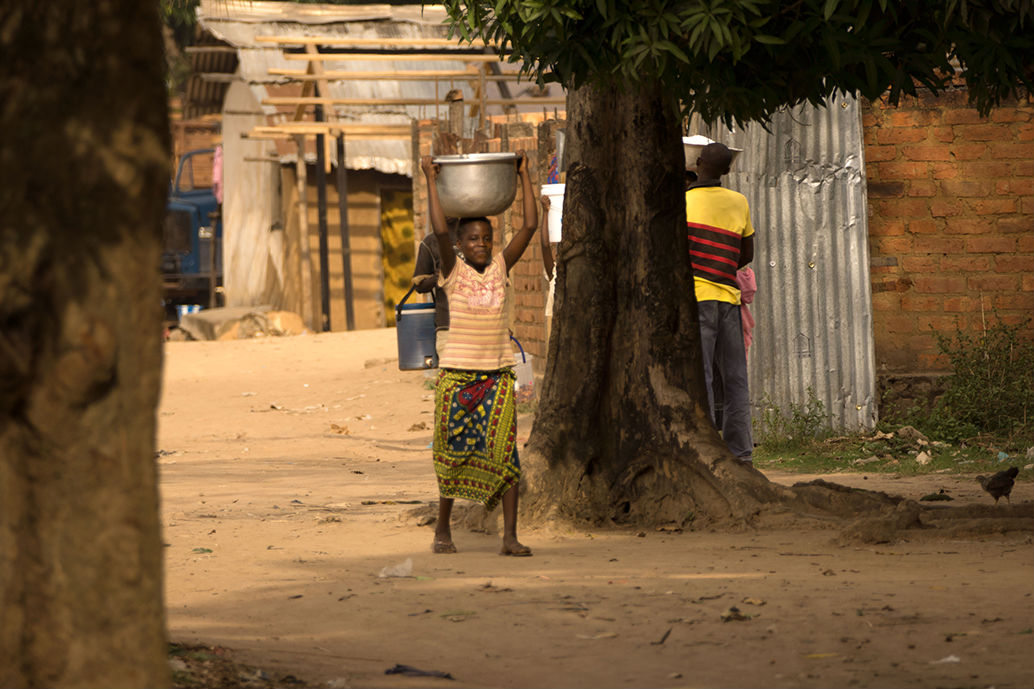
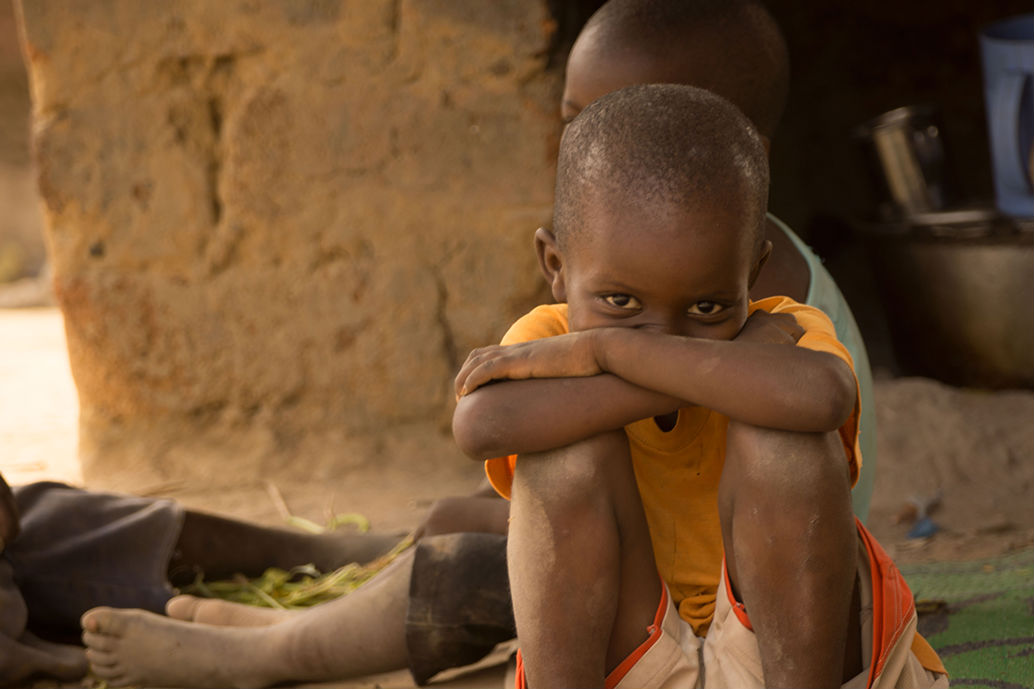
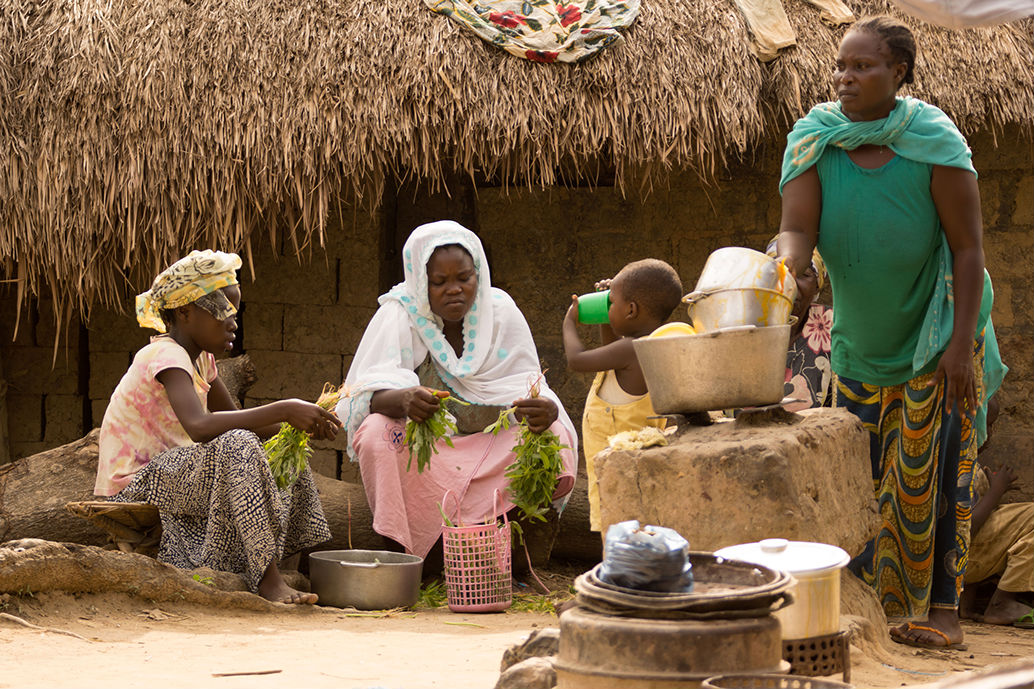
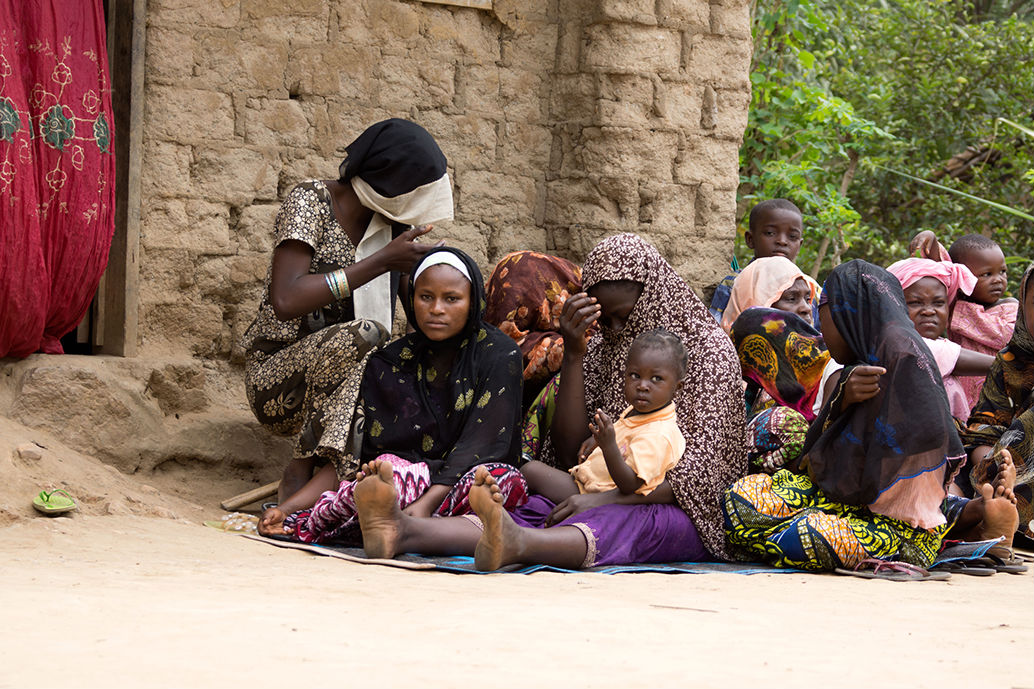
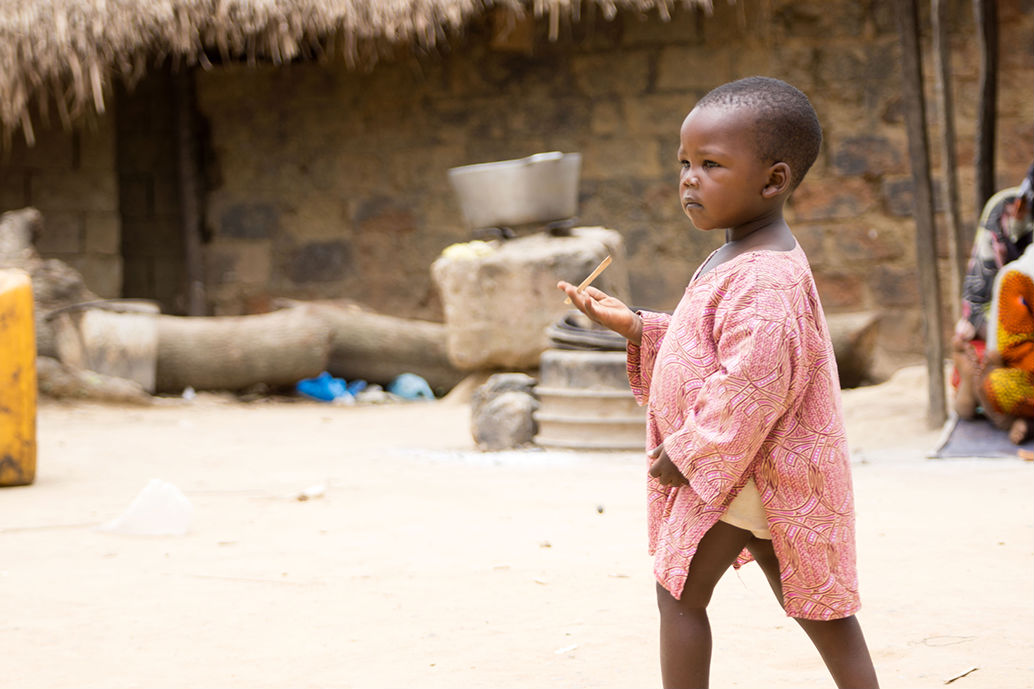
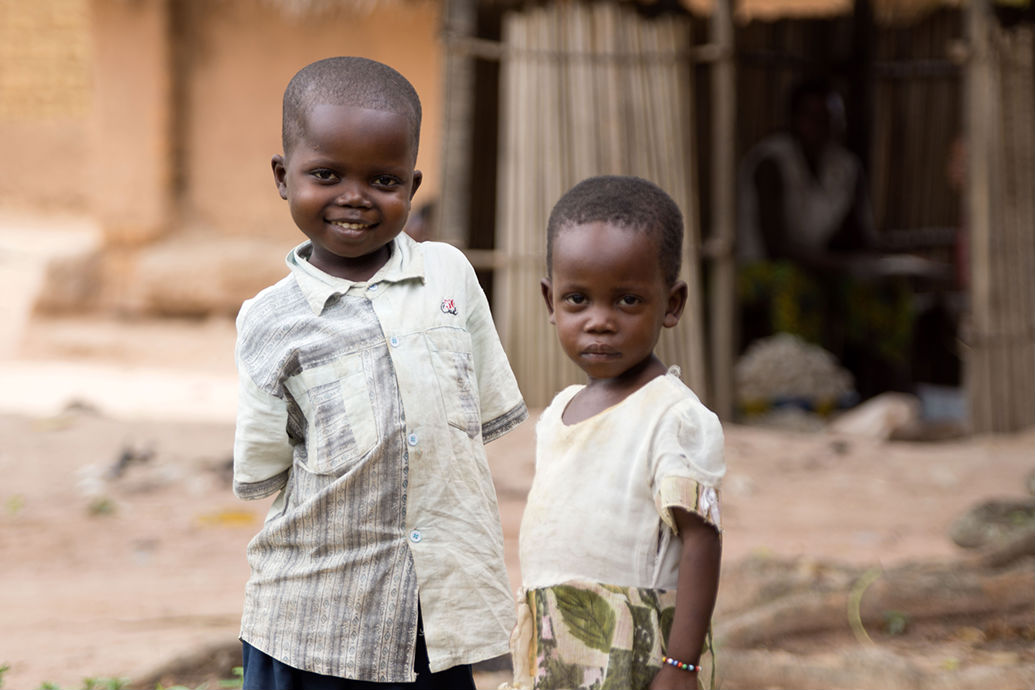
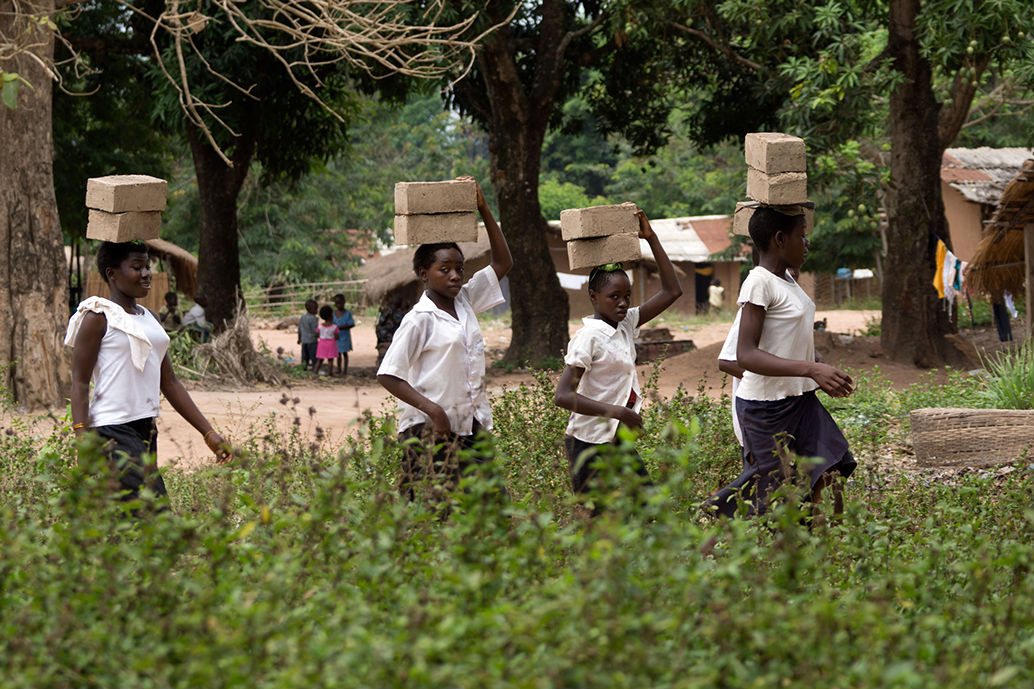
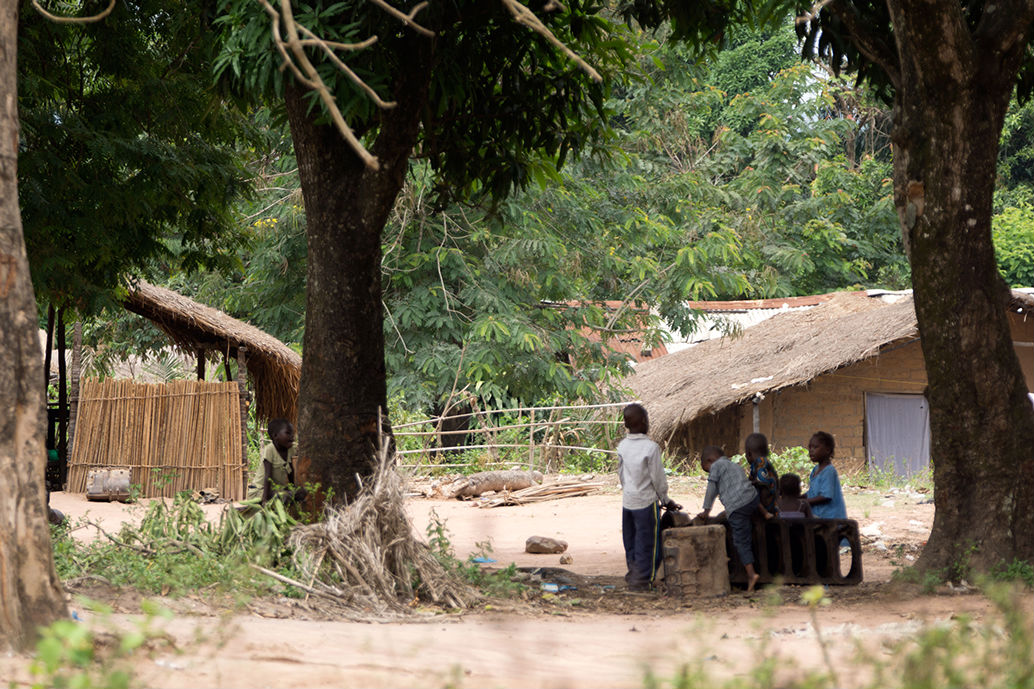
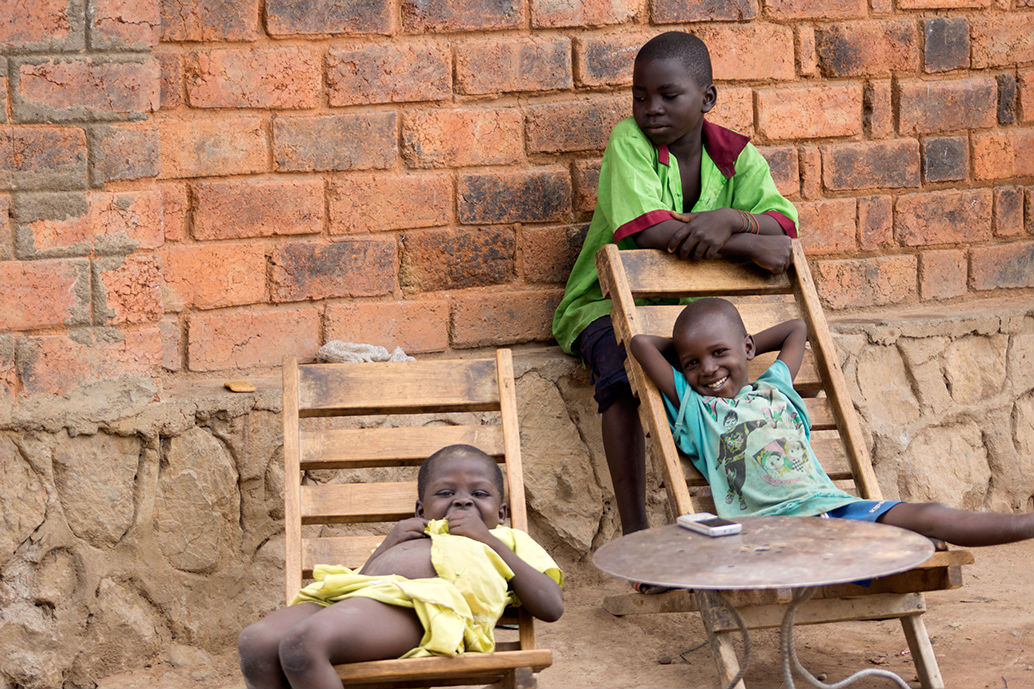
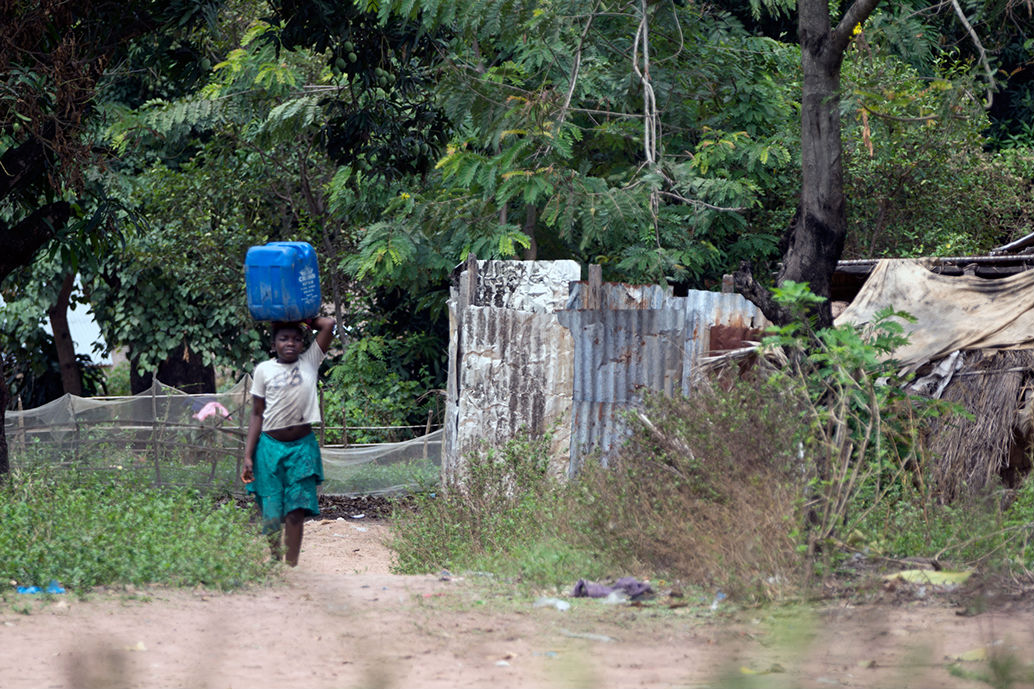
.jpg)
.jpg)
.jpg)
.jpg)
.jpg)
.jpg)
.jpg)
.jpg)
.jpg)
.jpg)


